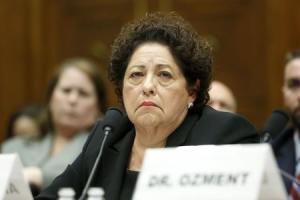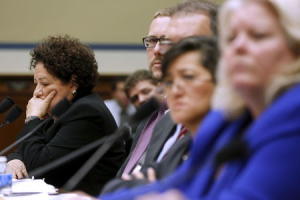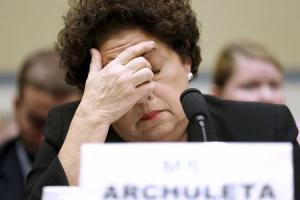By
Matt Rozsa
George W. Bush is trending on the Internet for a surprising reason. A
CNN/ORC Poll that
recently hit the Web yielded some good news for the embattled former
president: For the first time since the months after his reelection in
2004, more Americans have a favorable opinion of him (52 percent) than
an unfavorable one (43 percent).
Before
Republican Twitter starts
popping its proverbial champagne corks, however, it would be wise of
Republicans to remember that most former presidents become more popular
in the years after their administrations have ended. Both
Jimmy Carter and George H. W. Bush were widely disliked when their presidencies ended but are held in much higher regard today.
More
important, though, there is the simple fact that a president’s legacy
is ultimately determined by whether Americans were better or worse off
after he left office. How does Bush measure up?
1) He failed on September 11
Few would disagree that the
September 11
terrorist attacks were a defining moment of Bush’s presidency. As
president, his foremost responsibility was bringing the mastermind
behind those attacks—al-Qaeda leader
Osama bin Laden—to justice.
Bush failed in this mission. Instead of prioritizing hunting bin Laden down in
Pakistan, where he was suspected of hiding (and where
Obama promised to get him during the 2008 presidential election), Bush waged two costly and ineffective wars. The first was against
Afghanistan, a nation that harbored bin Laden and his al-Qaeda terrorists but was not formally governed by them, and the second against
Iraq, a nation that had absolutely nothing to do with September 11.
In the process, he
significantly damaged America’s reputation overseas (which didn’t begin to improve until
the beginning of Obama’s presidency) and destabilized the
Middle East in ways that
we’re still seeing today. Remember that time Jeb Bush was asked about his brother’s role in creating
ISIS? That’s because his brother helped create ISIS.
2) His policies caused the Great Recession
When Bush took office, he inherited a strong economy built by President Bill Clinton: unemployment had
fallen from 7.3% to 4.2%, creating
more than 22 million jobs in the process, and the median family income had
increased by more than $6,000.
By comparison, Bush’s presidency only managed to oversee the creation of
fewer than 1.1 million jobs, by far the lowest of any president since Harry Truman, while income inequality expanded at
staggering levels. The
top 10 percent of American earners pulled in almost half of total
wages, the most lopsided wealth distribution since 1917.
Although
the economic stagnation became apparent very early in his first term,
it didn’t turn into a full-fledged recession until the collapse of
America’s financial industry in 2008, after which unemployment
shot up
from 6.2 percent in September (the month of the crash) to 7.7 percent
in January (the end of Bush’s presidency). This was an average increase
of 0.3% per month.
Considering that Bush’s
policy of Wall Street deregulation
was largely responsible for the reckless practices of the “too big to
fail” banks that brought the economy to its knees, it’s fair to say that
this was one of the two most significant fiscal failures of his
administration.
The other, of course, was his squandering of the
Clinton budget surplus. When Clinton left office in January 2001, he
bequeathed America with a projected
$1.9 trillion surplus. By the time Bush handed the economy off to Obama in 2009, the Congressional Budget Office projected
$1.2 trillion in debt, due largely to Bush’s
$1.5 trillion in tax cuts to the wealthy, as well as the additional trillions spent on the aforementioned wars in Afghanistan and Iraq.
3) He eroded American civil liberties to an unprecedented degree
When Sen. Russ Feingold (D-Wisc.) cast his vote against the
USA PATRIOT Act—the only member of the Senate to do so—he
explained his reasoning as follows:
In the play, A Man for All Seasons, Sir
Thomas More questions the bounder Roper whether he would level the
forest of English laws to punish the Devil. “What would you do?” More
asks, “Cut a great road through the law to get after the Devil?” Roper
affirms, “I’d cut down every law in England to do that.”
To which More replies:
“And
when the last law was down, and the Devil turned round on you—where
would you hide, Roper, the laws all being flat? This country’s planted
thick with laws from coast to coast... and if you cut them down... d’you
really think you could stand upright in the winds that would blow then?
Yes, I’d give the Devil benefit of law, for my own safety’s sake.”
Feingold’s words proved quite prophetic. From
torturing suspected terrorists in clear violation of the Geneva Convention to laying the groundwork for the
NSA’s unprecedented domestic spying program, Bush’s
post-9/11 legislative initiatives ultimately threatened American
freedom more than Osama bin Laden’s schemes ever managed to do.
America's
surveillance age hasn’t made the world any safer from terrorism,
sacrificing your privacy for what’s proving to be nothing more an
endless war on America’s own people.
4) He bungled his response to Hurricane Katrina
Believe
it or not, it isn’t that difficult for a president to effectively
manage disaster relief after a hurricane: Lyndon Johnson
famously mastered the aftermath of Hurricane Betsy in 1965, while Barack Obama’s response to Hurricane Sandy was so effective that it was
erroneously credited for his reelection in 2012.
By contrast, Bush utterly failed when Hurricane Katrina wreaked havoc on the Gulf Coast in 2005—a
subsequent report by the House of Representatives found that his administration disregarded numerous warnings of the threat to
New Orleans, did not execute emergency plans, and neglected to share information between different departments that could have saved lives.
5) When it came to one of the biggest civil rights issue of his time, he placed himself on the wrong side of history
When future historians look back at the early 21st century, there is little question that they will view the campaign for
LGBT
equality as one of the major civil rights movements of the era. Yet not
only did Bush fail to advocate on behalf of the LGBT community (despite
his vice president having a
lesbian daughter and his party being chaired by
a closeted gay man, Ken Mehlman, during his second term), but he
actively exploited
anti-gay bigotry during his reelection campaign in 2004. This was
particularly the case in states like Ohio, where its pull among
so-called
“value voters” played a considerable role (alongside
racially based voter suppression) in Bush’s winning that state—and with it, the general election.
None
of this means that George W. Bush is a bad human being, or even that he
set out to cause harm to the nation he professes to love. At the same
time, no bounce in his approval rating can eclipse the damage that he
did while in office. More Americans may like Bush than dislike him right
now, but when his legacy is ultimately appraised, the final verdict
will not be a kind one.
Matt Rozsa is a Ph.D. student in
history at Lehigh University, as well as a political columnist. His
editorials have been published on Salon, the Good Men Project, Mic,
MSNBC, and various college newspapers and blogs. Matt actively
encourages people to reach out to him at matt.rozsa@gmail.com.



























